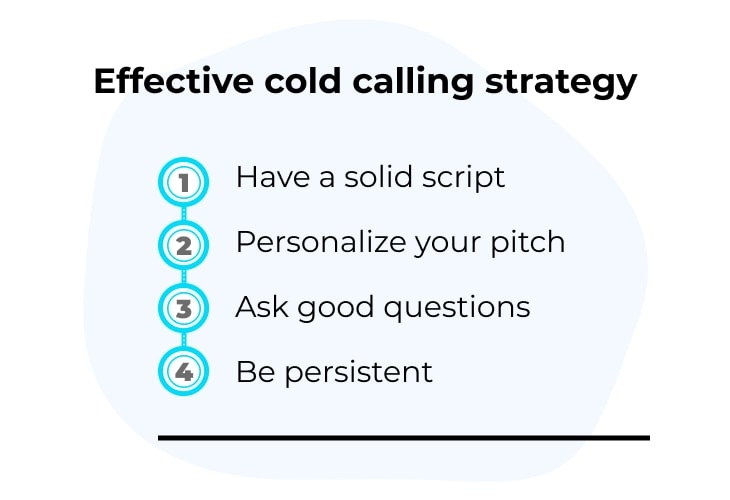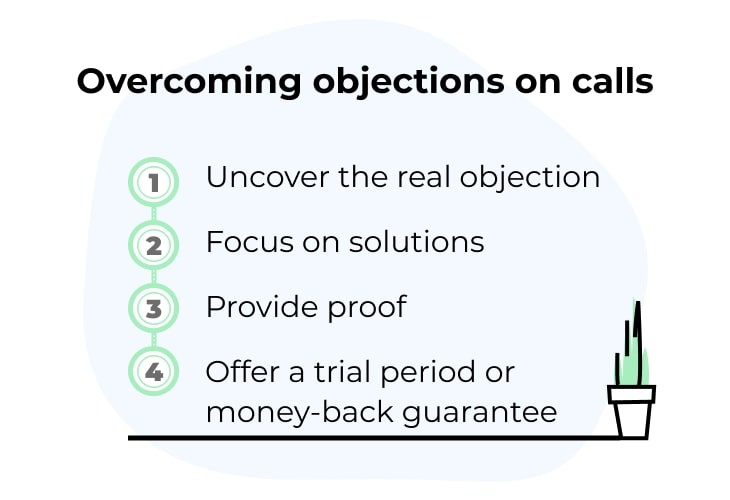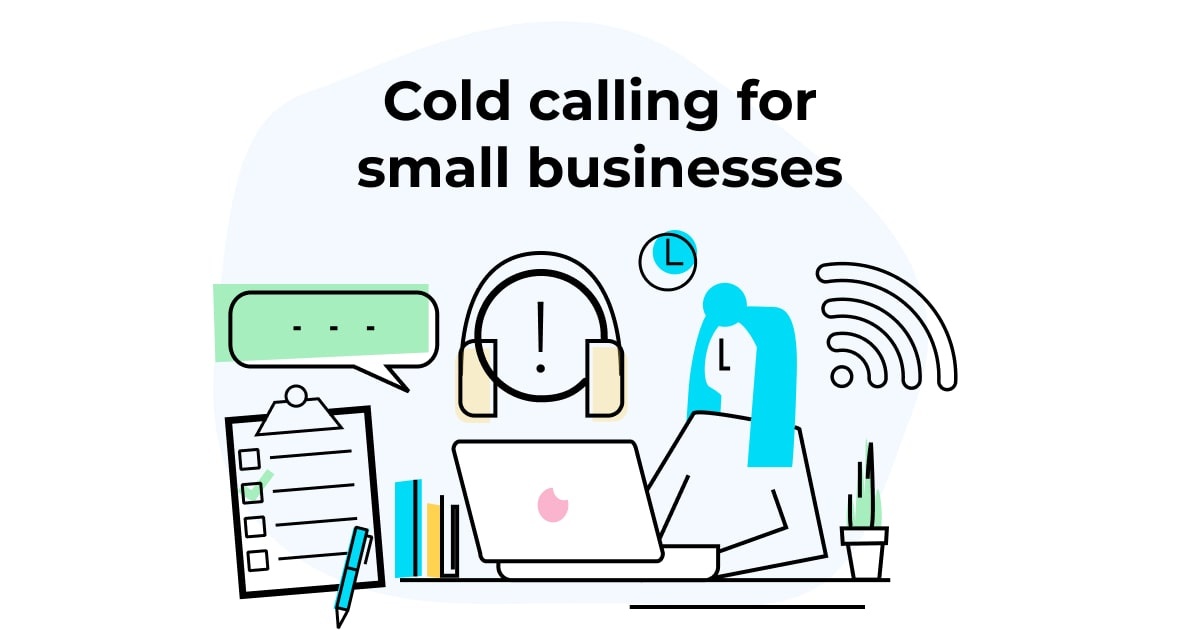You know how it goes. As a small business owner, you’re constantly looking for new ways to boost your sales numbers and bring in more revenue. One proven method is cold calling—reaching out to potential new customers you’ve never connected with before. While it can seem intimidating, cold calling is an effective way to grow your business if you go in with the right techniques and strategies.
In this article, we’ll cover what cold calling really is, the key principles for success, and some of the most effective ways to seal the deal on the phone. By the end, you’ll be armed with the knowledge and confidence to start picking up the phone and dialing for dollars.
What is cold calling and why it matters for small businesses
Cold calling is picking up the phone and reaching out to potential new clients to try and make a sale. It may seem like an outdated strategy, but for small businesses, it remains an effective way to generate new leads and close deals.
- It helps you improve your sales pitch. With each call you make, you’ll get better at explaining your offer and handling objections. You’ll learn what works and what falls flat.
- Cold calling results in higher quality leads. By speaking directly to someone, you can qualify if they’re genuinely interested and a good fit before investing more time.
How to craft an effective cold calling strategy to land more appointments

Cold calling can be frustrating, but when done right, it’s one of the most effective ways to generate new leads and close more sales. Here are some proven techniques to land more appointments:
Have a solid script
Having a few well-crafted cold calling scripts gives you options to match different prospects. Keep them short, around 30 seconds, highlighting your key benefits and asking for an appointment. Practice them until you sound natural.
Personalize your pitch
Do some research on your prospect before calling to personalize your pitch. Mention their company by name and reference something they care about to build rapport. People love to hear their own name and company!
Ask good questions
Asking questions is a great way to start a conversation, learn about your prospect’s needs, and show you care. Have some prepared, like “What are your key priorities this quarter?” or “What challenges are you currently facing?” Their answers will guide where to take the call.
Be persistent
Don’t get discouraged easily. It can take 6-8 calls to connect with some prospects. Leave a message the first time, then call again a couple of days later at a different time of day. Say you left a message and wanted to try again to schedule a meeting. Persistence and patience pay off.
Crafting a compelling cold call script with an assumptive close
Crafting a compelling cold call script with an assumptive close technique can help to boost your confidence, engage prospects, and close more deals. The assumptive close is based on the idea that your belief in something can lead to it coming true.
Assuming the sale
An assumptive close is when you assume a customer plans to purchase from you and encourage them with positive, reassuring remarks. For example, you might say something like:
- “To get you started, I’ll just need to gather some information.”
- “Let’s schedule your installation for next week.”
- “Would you like to pay the full amount upfront or spread it over a few months?”
Speak confidently and casually, assuming the prospect will buy. This helps the prospect visualize themselves as a customer and moves them closer to a purchase.
A winning cold call script
A good cold call script should:
- Start with a call opening line that includes a friendly greeting, then introduce yourself and your company.
- State the purpose of your call and mention the benefits of your product or service.
- Ask a few questions to determine if the prospect would benefit from and be interested in your offering.
- Share a story or example of how you’ve helped other clients.
- Use assumptive closes like the examples above to nudge the prospect towards a sale.
- Ask for the sale by saying something like “Are you ready to get started today?”
- Address any objections and be prepared to negotiate.
- Thank them for their time regardless of the outcome.
Crafting a compelling yet concise cold call script takes practice. Start with an outline and fill in the details to suit your specific product and customers. Record yourself and listen back to identify any areas that could be improved. With regular use, an assumptive close and a winning script, you’ll gain confidence, improve your sales skills and ultimately boost your revenue.
Tips for overcoming objections and rebuttals on cold calls

Rebutting objections is key to closing sales on cold calls. Here are some tips to help overcome customer concerns and keep the conversation moving forward:
Uncover the real objection
Ask follow-up questions to determine the root cause of their objection. Say something like, “Help me understand your concern a bit more.” Often the stated objection is just a smokescreen for the real issue. Addressing the real problem will increase your chances of overcoming their objection.
Focus on solutions
Describe how your product or service solves their needs and addresses their pain points. For example, say “I understand, many of our clients had similar concerns initially. However, they found our online booking and scheduling software drastically reduced no-shows and increased their revenue. Would a demo showing how we could achieve similar results for your business be helpful?” Focusing the conversation on solutions helps the prospect visualize the benefits of your offer.
Provide proof
Back up your claims with social proof like testimonials, case studies, reviews or statistics. For instance, “We have a proven track record of increasing lead conversion rates by over 35% for small service businesses. Over 500 companies in your industry use our software to boost their sales.” Verifiable evidence builds credibility and reassures skeptical prospects.
Offer a trial period or money-back guarantee
Remove the risk by offering a free trial or money-back guarantee. Say something like, “Why don’t you take advantage of our 14-day free trial to see how our tool can impact your business? If you’re not 100% satisfied, you can cancel anytime with no obligation.” This can overcome pricing and value objections by allowing them to experience your product at no cost.
Measuring and optimizing your cold calling strategy for results
To get results from your cold calling efforts, you need to measure and optimize your strategy. Track key metrics like call volume, connection rate, appointment set rate and sales conversion rate.
Track your calls
Use a CRM software or spreadsheet to log details of each call, including date, time, prospect name, company, outcome, next steps, and notes. This allows you to see patterns, evaluate what’s working, and make improvements.
Set specific goals
Establish weekly or monthly targets for:
- Call volume (e.g. 100 calls/week)
- Connection rate (e.g. 30% of calls reach a prospect)
- Appointment rate (e.g. 10% of calls book an appointment)
- Sales conversion rate (e.g. 50% of appointments become sales)
Review your metrics regularly and adjust goals as needed based on results. Don’t get discouraged if you miss a target—evaluate what you can improve and try again. With practice, your skills and confidence will increase.
Review and refine
Examine your call log and metrics to identify any gaps or weak points in your process. Consider:
- Are you targeting the right prospects?
- Is your messaging compelling?
- Are you asking good questions to identify needs?
- Is your close too weak or too pushy?
Make changes to your approach, script or strategy as needed. Even small tweaks can lead to big improvements.
Keep practicing
The more you do it, the better you’ll get at cold calling. Set a regular schedule to make calls, whether it’s 30 minutes a day or a few hours a week. Track your progress to stay on track towards your goals. If you hit obstacles, don’t get discouraged. Review, refine and keep at it. With regular practice, cold calling can become second nature and a highly effective tool for driving new business.
Measuring, analyzing and optimizing your efforts is key to cold calling success. Put in the work to evaluate what’s working, set specific goals, make improvements, and keep practicing. With time and persistence, you’ll gain more confidence.
Don’t let cold calling be uncomfortable
Cold calling may feel uncomfortable at first, but with the right techniques and strategies, you’ll be closing more sales in no time. Remember, do your research ahead of time and have a solid pitch ready. Ask good questions to uncover your prospect’s needs and goals. Then use assumptive closes or other persuasive techniques to help them see the value in what you’re offering. Stay positive, focused, and determined. Success is often just a few phone calls away.




























